Dmytro Pletenchuk, in an interview with the National Union of Journalists of Ukraine (NUJU), talked about a whole layer of new, young faces that appeared in journalism literally before our eyes.
We had a talk with the spokesperson of the Naval Forces of the Armed Forces of Ukraine (AFU)/ Captain 3rd rank Dmytro Pletenchuk right after his receiving an award for personal courage shown in the defense of the state sovereignty and territorial integrity of Ukraine and selfless performance of military duty. The President of Ukraine awarded Dmytro Pletenchuk with the Order of Danylo Halytskyi. The NUJU has recommended Dmytro for this award as he really performs his duties at a high professional level. He not only communicates with media representatives but also teaches future AFU press officers how to interact with both journalists and military colleagues within the Armed Forces.
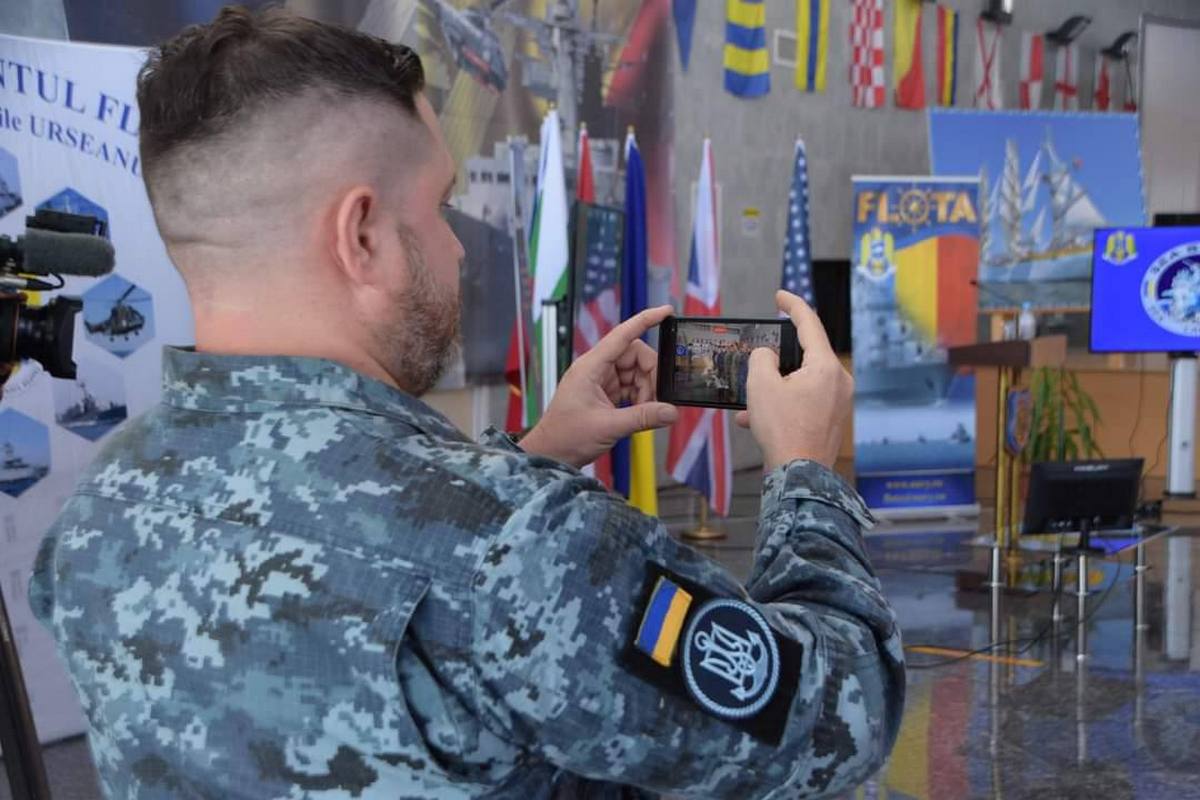
“I remember the journalists whom I led by the hand into journalism two years ago,” Dmytro said. “And they came to the interview with a microphone and three questions. Now, they have really become professionals with a capital letter. This war forced many to learn quite quickly to grow, especially professionally. This experience is complex, difficult, and sometimes even bloody; it forces a person to move forward, and this is very noticeable. A new galaxy of young journalists was formed, and a new cluster of people called fixers also emerged. A fixer is a field producer who usually organizes the work of foreign agencies and foreign journalists. And we should not forget about the impact on media coverage in the whole world of the events taking place in Ukraine, precisely thanks to fixers. These people also have a rather serious influence on foreign journalists; they direct them very often exactly in the direction in which it really needs to be done, pointing out important things. Foreign journalists also during these two years, it can be said that they did not grow up in our war (many foreign journalists come with rich experience of several armed conflicts), but they have already adapted to such an extent and already live our life, our war, that some they don’t even need a translator – they learned the language during this time. They try to get into the details; it is important for them. Especially for those who work on the first armed conflict.”
Every day, Dmytro Pletenchuk communicates with hundreds of journalists-representatives of both Ukrainian and foreign mass media. He has built trusting professional relationships with many. Despite this, problems in cooperation with the media in the conditions of martial law still occur.
Among the problems, there are several main points. The main problem that Ukrainian journalists face on a daily basis is interaction with the military administration, interaction with the structure of the AFU, receiving answers, and organizing work. That is what is now such an important element that quickly allows journalists to complete the tasks set before them. First of all, you need to understand the functionality and structure – this is the most important thing. The vast majority of journalists and fixers understand this perfectly. That is, it is necessary to understand which specific structure is responsible for what because it is complex and dynamic; operational groups; commands can change, and the interaction algorithm and zoning can change. We have a practice of zoning for permission to operate the press depending on the degree of danger, and the corresponding algorithms are perfectly prescribed in the regulatory framework, which media workers must study.
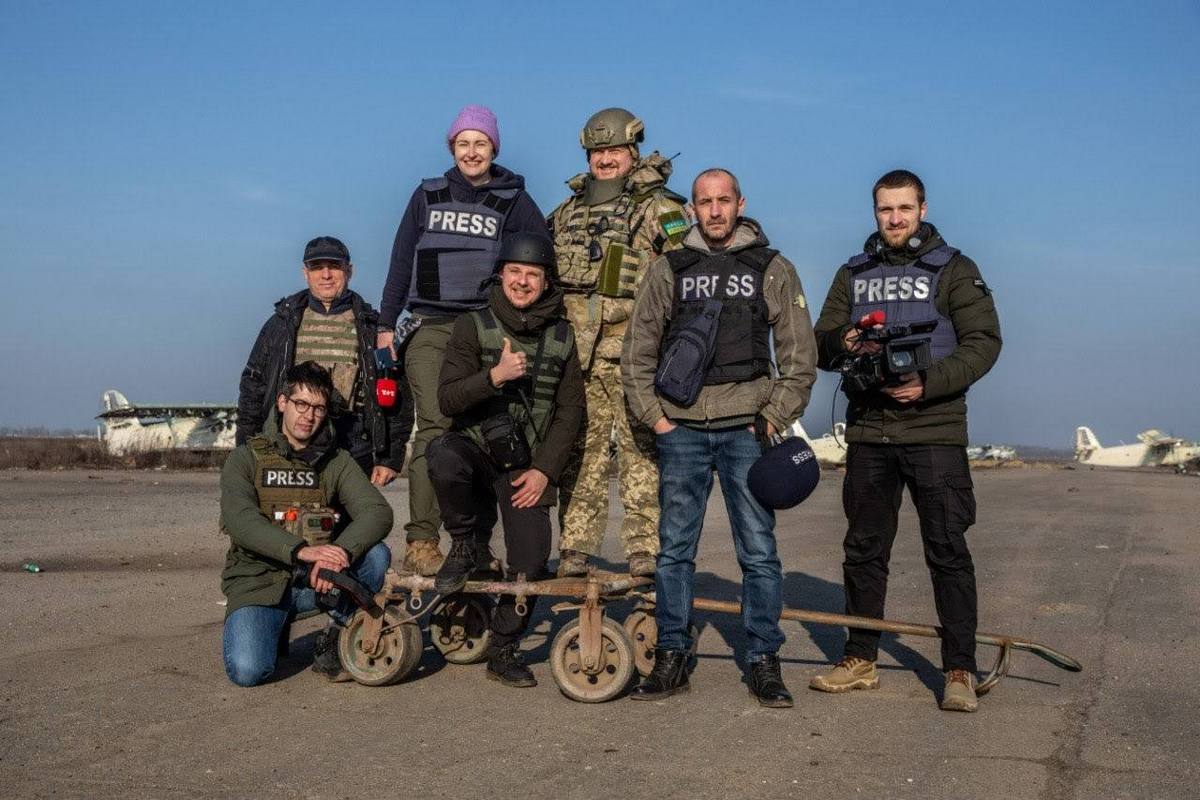
Sometimes, another problem is the closedness of the military system. Sometimes, it is justified, for example, justified by the safety of the operation; sometimes, unfortunately, it is not. Of course, our system evolves and adapts in the same way.
Among the remaining problems is the lack of personnel. But, given the scale of the full-scale invasion, quite a few journalists, especially young guys, went to the army, and there they were also able to realize their skills. That is why our press services have also been replenished with professional journalists due to the mobilization of representatives of the profession in the Armed Forces.
Media workers can find all the necessary information for working under martial law on the official website of the Ministry of Defense of Ukraine. However, we asked Dmytro Pletenchuk to single out the basic list of documents that regulate the activities of the media and disseminators of information during the war.
The main requirements for submitting information are specified in Order 73 of the Commander-in-Chief of the AFU. All active journalists know this order; it contains a specific list of prohibitions. Of course, the work in the combat units agrees with the respective commands, and journalists mostly know about it as well.
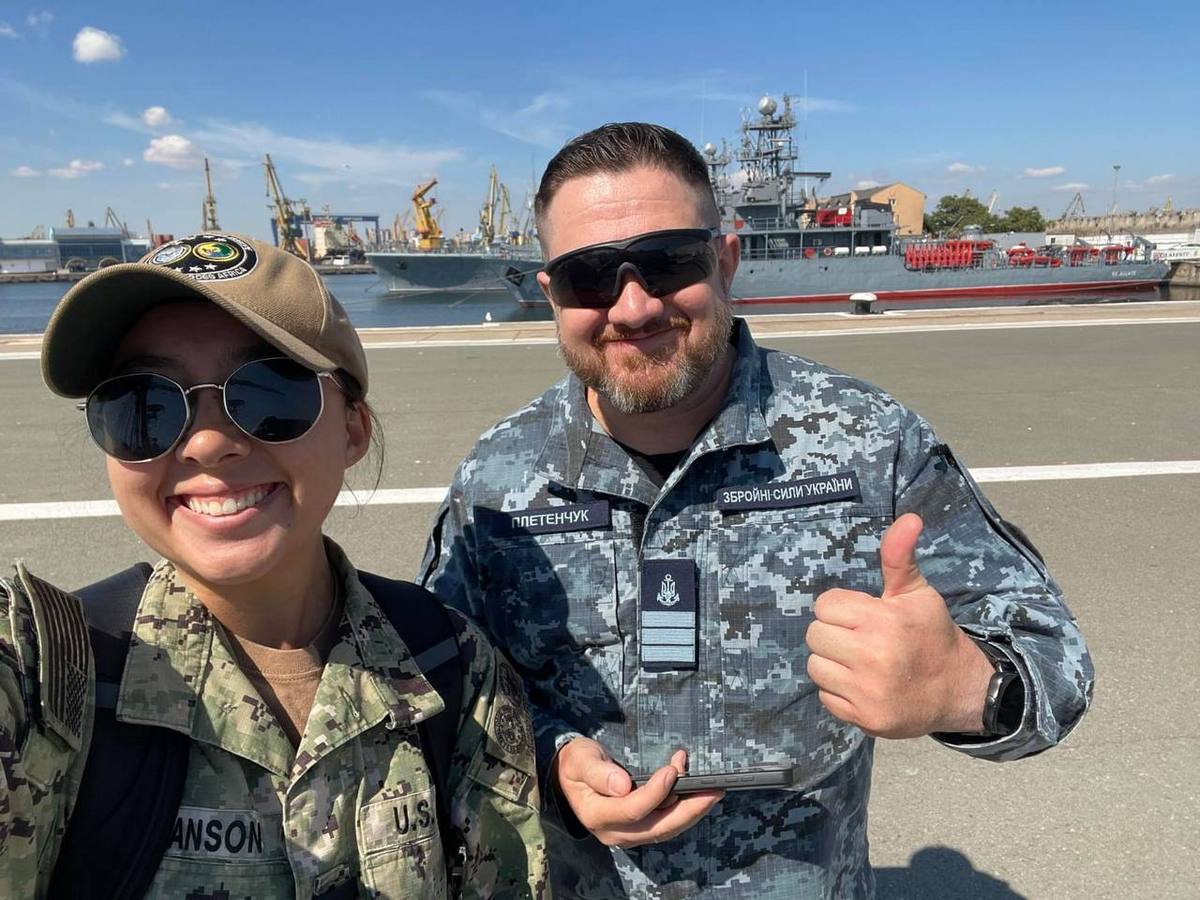
There is also a memorandum which forbids to indicate immediately the places of shelling. It is possible to publish materials about missile or shell-hitting civilian facilities 3 hours later and military facilities 12 hours later. All the same, military facilities cannot be shown without the permission of the relevant military structures, and it is clear why: because a journalist should not turn into a tool for “objective recording” of the results of the work of our enemies. This periodically happens in the territory of the russian federation because they have not yet adapted; they have not yet understood the true extent of responsibility – both journalists and civilians. For them, it is still new in their territory, in contrast to our citizens and journalists, who already know what cannot be shown.
There are also differences between Ukrainian and foreign journalists. However, their [of differences] number is lower and lower: we adopt the experience of foreigners, and they learn from our war.
“In fact, the differences between the work of our and foreign journalists are considerable: the style of work, the way of presenting information,” says Dmytro Pletenchuk. “They are very different, and I see that our journalists learn from their colleagues. For example, foreign journalists of such large publications as the New York Times or The Guardian quite often convey information through the prism of a specific personality. For example, they can show the history of the war through the history of a specific person through a specific case. This is a way of presenting information so that the reader can come to terms with it and see it from the perspective of a specific person-participant in the events. Here, journalists are also taking it over now; that is, the format of news and many other things are changing somewhat in Ukraine. At one time, the number of foreign journalists here was even higher than that of the Ukrainian ones. Unfortunately, there were moments when it seemed that our journalists went west and the western ones went east. This was especially true of female journalists who were forced to leave, for instance, Mykolayiv where my wife, who is also a journalist, and I were staying.”
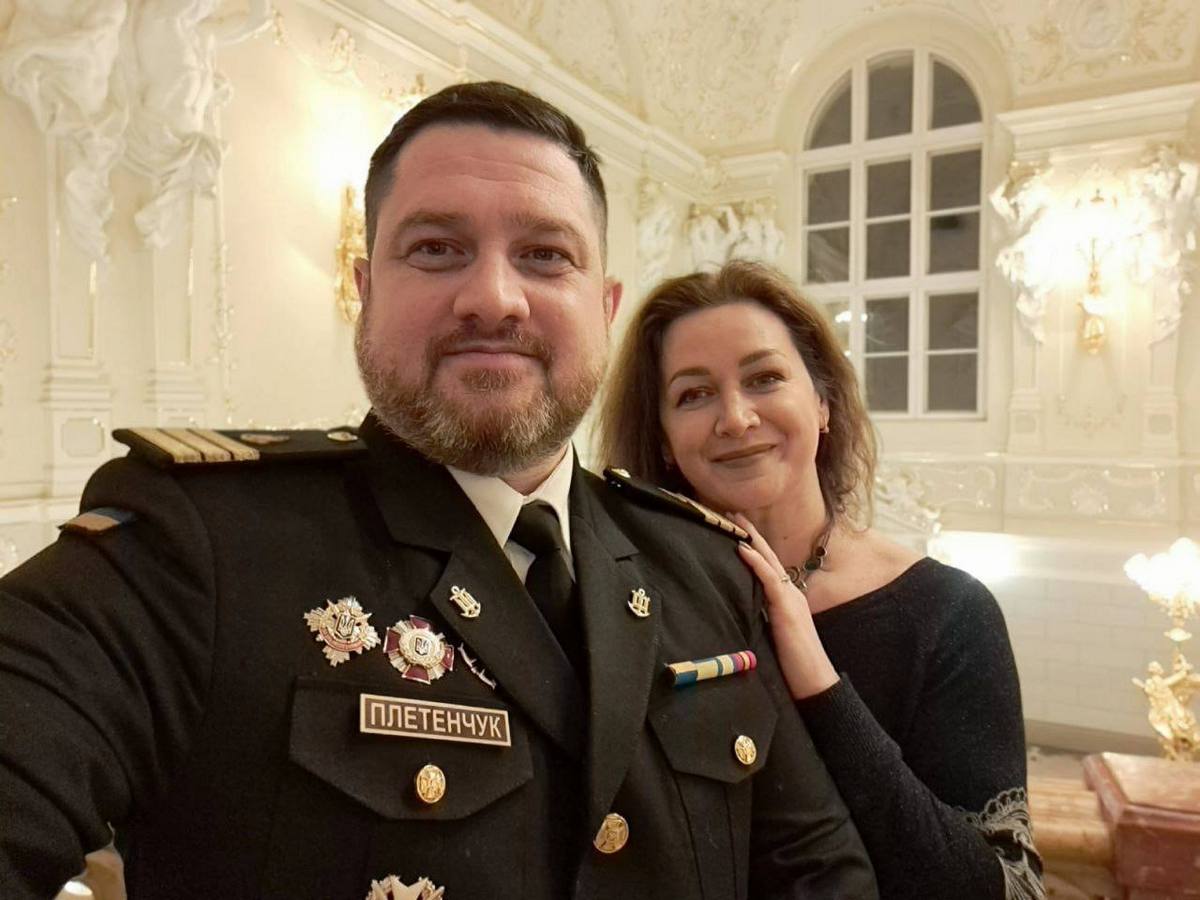
“And we actually saw unfamiliar faces, and everyone with whom we worked before, unfortunately, disappeared – many simply left, evacuated, they put their personal over the professional. Instead, there were young, dedicated journalists who were actually born professionally in this war and who, when an explosion occurs, instead of hiding, immediately automatically grab their phone and start filming. They have already grown so professionally that their fear of death takes a back seat to professionalism. And this is the level of journalism that we have always dreamed of in Ukraine. Unfortunately, we were able to achieve it precisely because of the events that have been taking place in our country in recent years,” says Dmytro Pletenchuk.
The issue of the safety of media workers remains a priority for the NUJU. However, we constantly record russian war crimes against media workers and state that the enemy violates the laws of war and international conventions by hunting down war journalists.
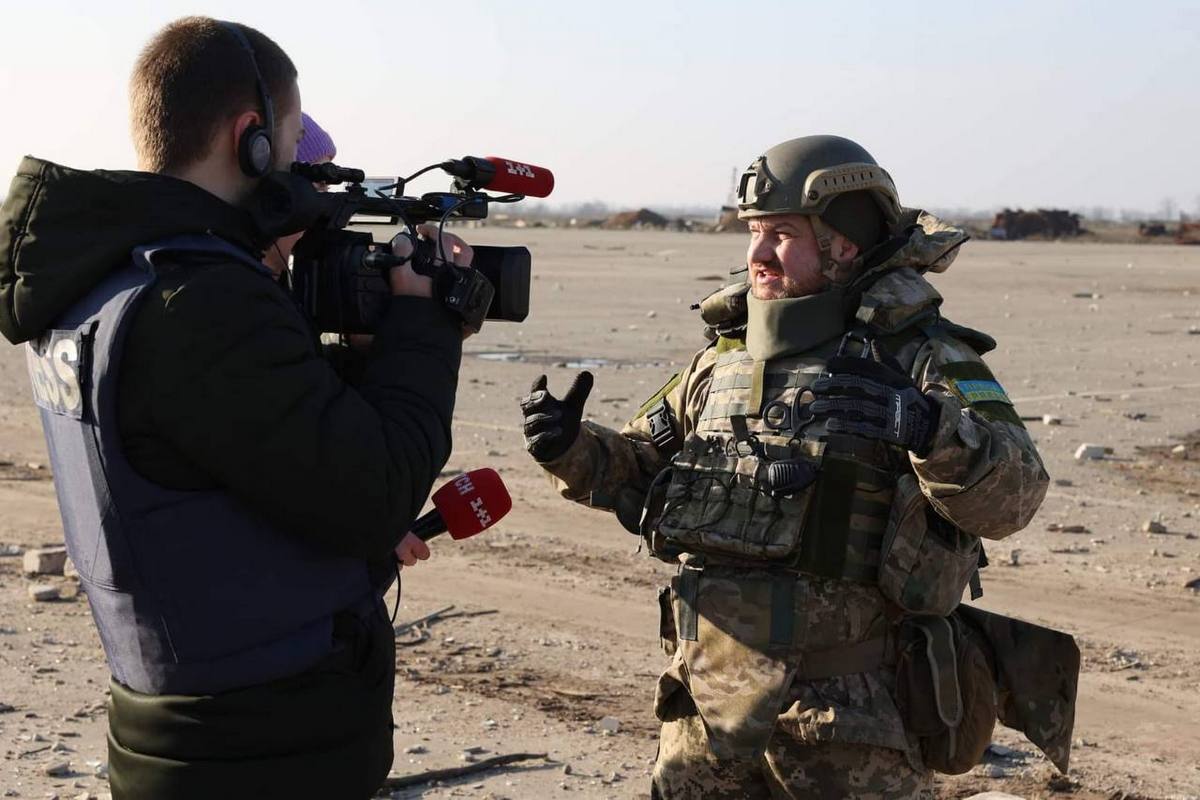
“Each of my instructing briefings with media representatives, especially in the recently de-occupied territories, began with the words that this inscription on your bulletproof vest “PRESS” is translated into russian as “SHOOT HERE.” And if, at first, it was still perceived as a joke, then after the fixer Bohdan Bitik was shot dead in such a vest on the Antonivskyi Bridge [Kherson], this joke has already ceased to be a joke. But when I said that, I wasn’t really kidding. Because there is nothing worse for the russian federation than evidence of their criminal activities, accordingly russians really dislike both media representatives and volunteers; it is not even clear who they hate more: those who help the army, or those who cover all the terrible things that they have done and continue to do, unfortunately. For them, there are no boundaries, rules, or understanding. It seems that for them, on the contrary, breaking all the rules is a challenge. And, unfortunately, as the case with Bitik showed, they will definitely take advantage of it. Because to cold-bloodedly shoot a person wearing a vest with the PRESS inscription on, they really had to have the respective order. That means that this is their state policy; this is a targeted attack against freedom of speech.”
As you know, russia does not have any freedom of speech at all, and they are trying to silence those journalists who are not directly in the territory of the so-called russian federation simply by shooting journalists in our territory.
Returning to the story with Bitik, this case is the result of a violation of the terms of cooperation by the fixer and his Italian journalist. Perfectly understanding the algorithm, understanding the rules, they neglected them. They did not inform me as a press officer about their presence in the region; they did not receive briefings; moreover, they came specifically without permits, without accreditation and, accordingly, got into the red zone, which I never allow journalists into. As a result, the russian occupiers simply shot them; the journalist was also injured. All this is a consequence of non-compliance with these requirements. Therefore, in order to avoid such tragedies, of course, it is necessary to contact the local press service. It can be a civilian press service; for example, each region has military administrations and a press office, which can provide the algorithm of actions or send it to the military, and a journalist can work only in agreement with such bodies. This is not an attack on freedom of speech. This is primarily to ensure the safety of the work of media representatives in the war zone. It is very important.
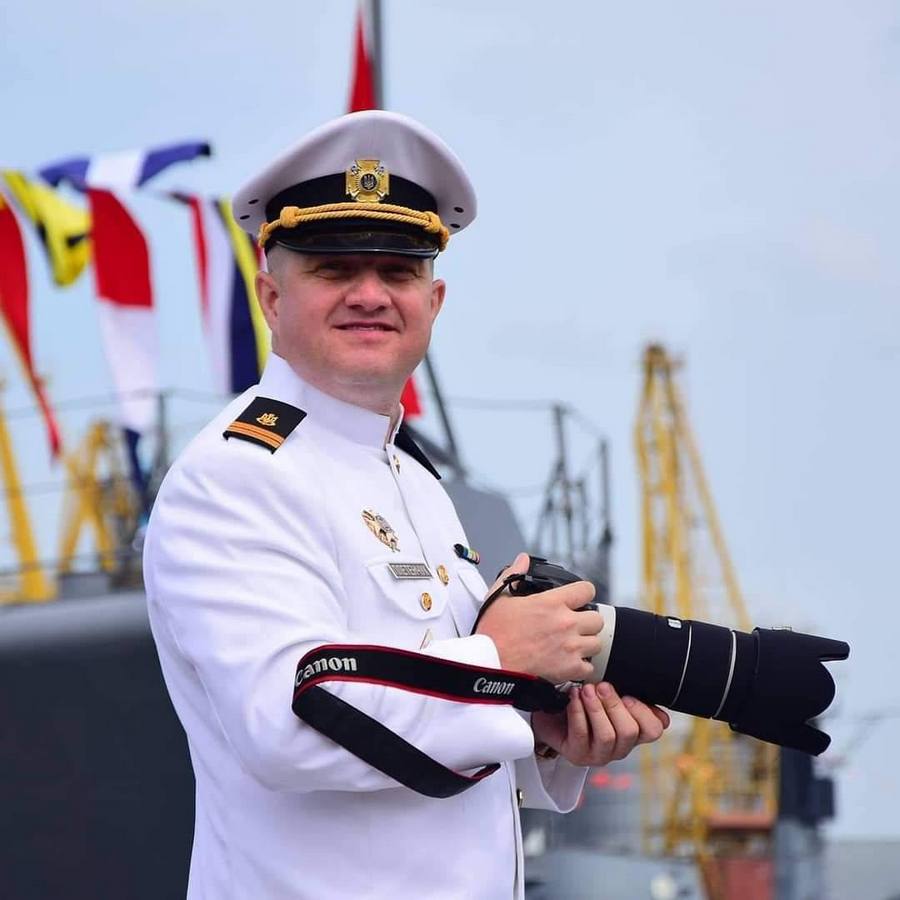
Natalia Shumak, NUJU Information Service

 THE NATIONAL UNION OF
JOURNALISTS OF UKRAINE
THE NATIONAL UNION OF
JOURNALISTS OF UKRAINE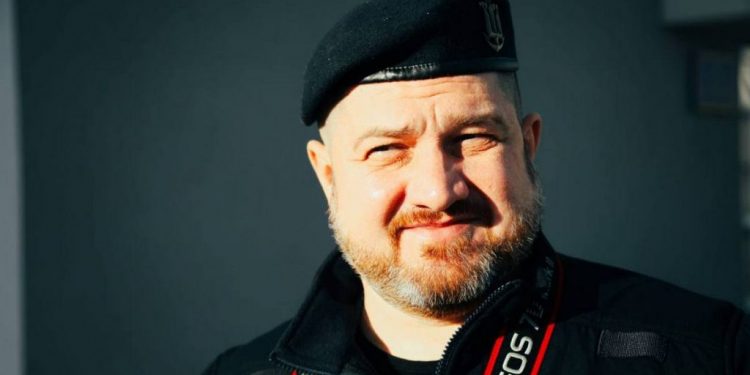
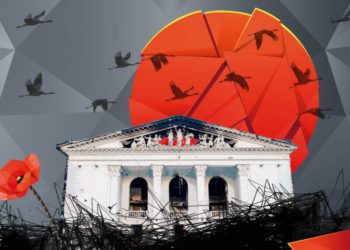
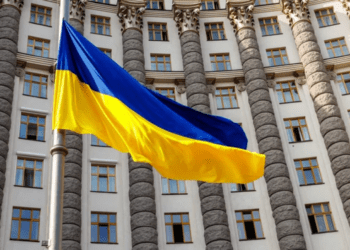
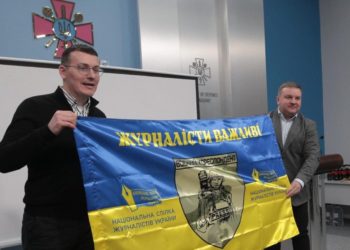













Discussion about this post